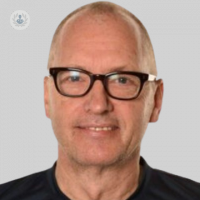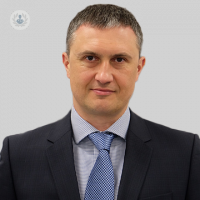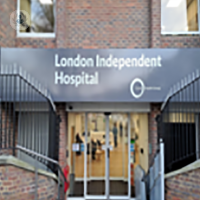What is joint pain?
Joint pain refers to pain, discomfort and soreness in the joints. Joints are the parts of your body where bones meet. They allow your bones to move. Joints include the shoulders, elbows, hips and knees. Joint pain can be the result of damage that occurs through normal wear and tear or be a sign of an infection or an underlying condition such as rheumatoid arthritis.
What are the symptoms of joint pain?
Symptoms of joint pain include:
- Swelling, redness and tenderness around the joint
- Pain persisting for three days or longer
- Fever symptoms without the flu
You should seek emergency care if the following symptoms are present:
- Joint deformity
- Swelling that occurs suddenly without reason
- If you’ve had an injury or fall
- You can’t move your joint
- You have extreme pain
How is joint pain diagnosed?
Your doctor performs a physical exam. A joint X-ray may be carried out to look at the joint damage. A blood test may be performed to detect if there is an autoimmune disorder.
What causes joint pain?
Joint pain is usually caused by diseases such as osteoarthritis and rheumatoid arthritis, and sometimes it’s caused by an illness or an injury. Osteoarthritis is one of the most common causes of joint pain and is mostly found among adults over the age of 40. Osteoarthritis affects the wrists, hands, hips and knees. The disease results from the breakdown of cartilage which acts a shock absorber and cushions joints.
Rheumatoid arthritis affects more women than and causes pain, inflammation and a build-up of fluid in the joints because the body’s immune system is attacking itself.
Other causes of joint pain include:
- Lupus
- Gout
- Bursitis
- Infectious diseases such as mumps, influenza and hepatitis
- Chondromalacia of the kneecap
- Tendinitis
- Overusing joints
- Cancer
- Rickets
- Osteoporosis
- Fibromyalgia
- Sarcoidosis
How can joint pain be treated?
Treatment will depend on the cause of the pain. Fluid may need to be removed from joints to test for infection or other causes of joint pain. In some instance surgery to replace the joint may be necessary. There’s no treatment currently available to treat osteoarthritis and rheumatoid arthritis, but the pain caused by these conditions can be managed with:
- Topical pain relievers
- Nonsteroidal anti-inflammatory drugs to reduce pain, swelling and inflammation
- Moderate exercise
- Stretching to keep joints mobile and flexible
- Maintaining a healthy weight, as this puts less pressure on your joints
- Getting adequate rest
- Taking a warm bath or having a massage can also help
Joint pain
What is joint pain?
Joint pain refers to pain, discomfort and soreness in the joints. Joints are the parts of your body where bones meet. They allow your bones to move. Joints include the shoulders, elbows, hips and knees. Joint pain can be the result of damage that occurs through normal wear and tear or be a sign of an infection or an underlying condition such as rheumatoid arthritis.
What are the symptoms of joint pain?
Symptoms of joint pain include:
- Swelling, redness and tenderness around the joint
- Pain persisting for three days or longer
- Fever symptoms without the flu
You should seek emergency care if the following symptoms are present:
- Joint deformity
- Swelling that occurs suddenly without reason
- If you’ve had an injury or fall
- You can’t move your joint
- You have extreme pain
How is joint pain diagnosed?
Your doctor performs a physical exam. A joint X-ray may be carried out to look at the joint damage. A blood test may be performed to detect if there is an autoimmune disorder.
What causes joint pain?
Joint pain is usually caused by diseases such as osteoarthritis and rheumatoid arthritis, and sometimes it’s caused by an illness or an injury. Osteoarthritis is one of the most common causes of joint pain and is mostly found among adults over the age of 40. Osteoarthritis affects the wrists, hands, hips and knees. The disease results from the breakdown of cartilage which acts a shock absorber and cushions joints.
Rheumatoid arthritis affects more women than and causes pain, inflammation and a build-up of fluid in the joints because the body’s immune system is attacking itself.
Other causes of joint pain include:
- Lupus
- Gout
- Bursitis
- Infectious diseases such as mumps, influenza and hepatitis
- Chondromalacia of the kneecap
- Tendinitis
- Overusing joints
- Cancer
- Rickets
- Osteoporosis
- Fibromyalgia
- Sarcoidosis
How can joint pain be treated?
Treatment will depend on the cause of the pain. Fluid may need to be removed from joints to test for infection or other causes of joint pain. In some instance surgery to replace the joint may be necessary. There’s no treatment currently available to treat osteoarthritis and rheumatoid arthritis, but the pain caused by these conditions can be managed with:
- Topical pain relievers
- Nonsteroidal anti-inflammatory drugs to reduce pain, swelling and inflammation
- Moderate exercise
- Stretching to keep joints mobile and flexible
- Maintaining a healthy weight, as this puts less pressure on your joints
- Getting adequate rest
- Taking a warm bath or having a massage can also help
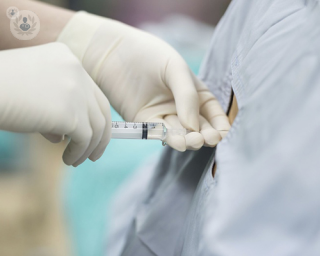

Fluoroscopic guided injections: how technology delivers safer pain relief treatment
Dr Yasser Mehrez
2024-11-21
Pain medicine is one of the fastest-growing medical specialties. The advancement in technology has helped in the development of new treatments to deliver effective pain relief interventions, such as fluoroscopic guided injections. Dr Yaser Mehrez, a consultant in pain medicine, give us a rundown of how they are performed and the type of treatments you can receive. Mostrare di più


Knee osteotomy: what expect your knee realignment surgery
Mr Raghbir Khakha
2024-11-21
A knee osteotomy can help take pressure off an arthritic area of your knee and relieve joint pain, instead of having to undergo a total knee replacement. But what does the procedure involve and how does a surgeon relieve the pressure? Mr Raghbir Khakha, a top consultant trauma and orthopaedic surgeon based in London explains. Mostrare di più
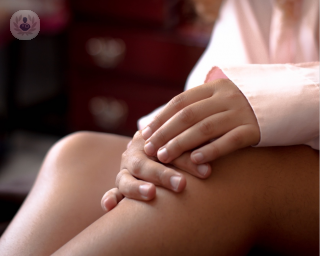

Types of injections for joint pain
Mr Rohit Jain
2024-11-21
When it comes to treating inflammatory joint conditions there are many ways of treating them. If you suffer from this condition, it's essential that you chat with an expert to ensure you treat the condition appropriately. We spoke with leading orthopaedic hip and knee surgeon, Mr Rohit Jain, to find out information on joint injections, the different types and how long their effects can last for. Mostrare di più


Common causes of knee pain in young adults and how to treat it
Mr Ayaz Lakdawala
2024-11-20
Sore, aching or swollen knees isn’t a problem only older people experience! Mr Ayaz Lakdawala, a highly-skilled consultant orthopaedic surgeon based in Coventry, explains the most common causes of knee pain in young adults and how different knee injuries can be treated. Mostrare di più
Medici esperti in Dolore alle articolazioni
-
Dr Ian Beasley
Medicina dello sportEsperto in:
- Lesioni sono danni
- Sport visita medica
- Medicina dello sport
- Traumatologia sportiva
- Lesioni muscolari
- Dolore alle articolazioni
-
Dr Anthony Ordman
Unità del doloreEsperto in:
- Dolore neuropatico
- Dolore muscoloscheletrico
- Dolore alle articolazioni
- Dolore da cancro
- Dolore cronico
- Distrofia simpatico- riflessa (DSR)
-
Dr Kiran Sachane
Unità del doloreEsperto in:
- Dolore alla spalla
- Dolore neuropatico
- Dolore cervicale
- Emicrania
- Sciatica
- Dolore alle articolazioni
-
Dr Sumit Gulati
Unità del doloreEsperto in:
- Denervazione da radiofrequenza
- Sciatica
- Dolore alle articolazioni
- Dolore neuropatico
- Dolore pelvico
- Dolore alla spalla
-
Dr Martynas Juozaitis
Unità del doloreEsperto in:
- Trattamento del dolore
- Dolore muscoloscheletrico
- Cellule madri
- Bio-stimolazione con plasma ricco di piastrine
- Ginocchio
- Dolore alle articolazioni
- Visualizzare tutti

Ross Hall Hospital - part of Circle Health Group
Ross Hall Hospital - part of Circle Health Group
221 Crookston Road, Glasgow G52 3NQ
No existe teléfono en el centro.
Se utilizzi questo numero di Top Doctors autorizzi al trattamento dei dati a fini statistici e commerciali. Per maggiori informazioni, leggi la nostra l’informativa sulla privacy
Top Doctors

TIC Health Harley Street
TIC Health Harley Street
112 Harley Street
No existe teléfono en el centro.
Se utilizzi questo numero di Top Doctors autorizzi al trattamento dei dati a fini statistici e commerciali. Per maggiori informazioni, leggi la nostra l’informativa sulla privacy
Top Doctors

The London Independent Hospital - part of Circle Health Group
The London Independent Hospital - part of Circle Health Group
1 Beaumont Square, Stepney Green
No existe teléfono en el centro.
Se utilizzi questo numero di Top Doctors autorizzi al trattamento dei dati a fini statistici e commerciali. Per maggiori informazioni, leggi la nostra l’informativa sulla privacy
Top Doctors
-
Ross Hall Hospital - part of Circle Health Group
221 Crookston Road, Glasgow G52 3NQ, GlasgowEsperto in:
- Tumori
- Cardiologia
- Chirurgia del colon-retto
- Dermatologia
- Mal di schiena
- Endocrinologia
-
TIC Health Harley Street
112 Harley Street, Central LondonEsperto in:
- Cardiologia preventiva
- Diagnostica per immagini
- Fisioterapia
- Medicina di famiglia
- Medico di famiglia
- Osteopatia
-
The London Independent Hospital - part of Circle Health Group
1 Beaumont Square, Stepney Green, East LondonEsperto in:
- Cataratta
- Chirurgia bariatrica
- Chirurgia maxillo facciale
- Chirurgia spinale neurologica
- Chirurgia ortopedica
- Chirurgia spinale ortopedica
- Visualizzare tutti
